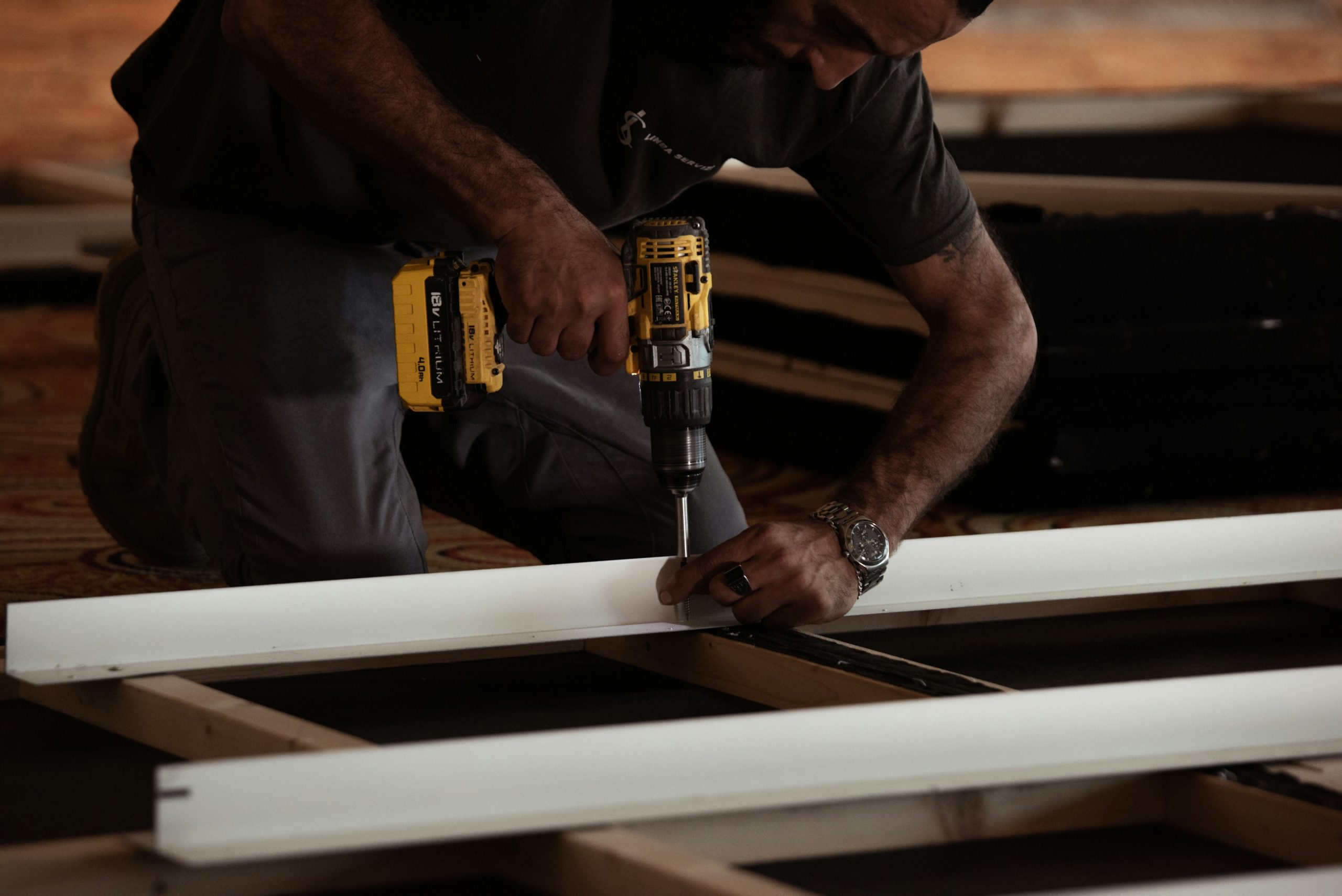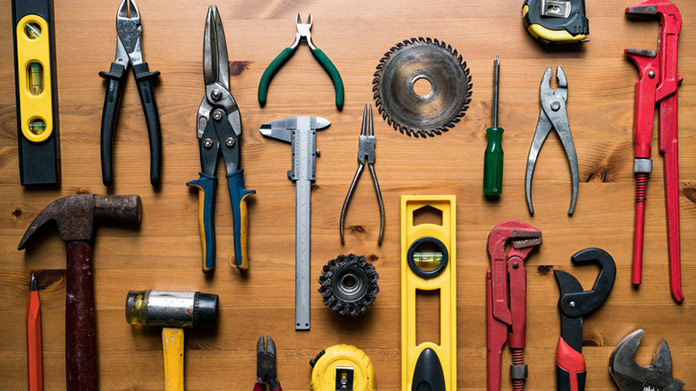A construction or home improvement project can be an exhilarating experience, but it often comes with the challenge of acquiring the right tools. Professional tool rentals provide a cost-effective and efficient solution for individuals and businesses alike. They enable you to access high-quality equipment without the hefty price tag of purchasing these tools.
Fact.MR notes that the equipment rental market held a valuation of $54.7 billion last year. This figure is expected to hit $82.5 billion by 2033 at a yearly growth rate of 4.2%. This highlights the steadily increasing demand for equipment rental services.
In this article, we will explore the various ways in which you can leverage professional tool rentals to ensure project excellence and success.
Understanding Your Project Needs
Before diving into the world of professional tool rentals, take the time to comprehensively assess the requirements of your project. Begin by creating a detailed checklist of the tools and equipment necessary for successful completion. Consider the scale, complexity, and specific tasks involved in your project.
For instance, a home renovation project might demand a diverse set of equipment ranging from power saws to paint sprayers. Understanding your project needs not only ensures that you rent the right equipment but also helps in planning and budgeting effectively.
Identify any specialized tools required for unique tasks, ensuring that you have a comprehensive list to guide your rental decisions. This initial step sets the foundation for a streamlined and efficient rental process, preventing unnecessary expenses and delays.
Exploring Rental Options
Once you have a clear list of required tools, check out the various rental options available in the market. Conduct thorough research on local rental companies, online platforms, and community bulletin boards. SitePro Rentals notes that it is worth considering factors such as the range of available equipment, rental rates, delivery options, and company reputation.
Imagine you are working on a home improvement project in Austin. To find the most convenient and reliable equipment rental service, initiate a Google search with the query “tool rental near me in Austin, TX.” This specific search phrase tailors the results to your location, presenting a curated list of tool rental companies within the Austin area.
Online platforms like Google Maps often accompany these search results with user reviews and ratings. Take advantage of this information to gain insights into the experiences of individuals who have engaged with these services in Austin.
Compare and contrast the offerings of different rental providers. Look for customer reviews and testimonials to gain insights into the reliability and service quality of each rental option. As noted by Business.com, the State of User-Generated Content Report of 2022 states that 72% of potential customers trust existing customer reviews.
By taking the time to explore these options, you can make an informed decision that aligns with both your project requirements and budget constraints.
Cost-Benefit Analysis
While the appeal of cost savings through rentals is evident, it is essential to conduct a thorough cost-benefit analysis before finalizing any agreements. Begin by evaluating the total cost of ownership if you were to purchase the required tools outright.
Forbes states that a power hand tool can be rented for as little as $10 or less per day. Mid-sized tools usually cost between $30 to $60 per day, with some exceptions for more expensive specialty tools. Renting a skid steer excavator costs about $300 per day.
On the other hand, if you decide to purchase a power hand tool, prices can vary widely based on the type and brand. Entry-level options might start at around $50, while high-end professional-grade tools can range from $200 to several hundred dollars. Mid-sized tools for general use may be priced between $100 and $300.
Specialized tools, such as those used in construction or woodworking, can be even more expensive. With prices ranging from $20,000 to $50,000 or more, investing in a skid steer excavator can be a substantial commitment.
Factor in not only the purchase price but also ongoing expenses such as maintenance, storage, and potential depreciation. Next, compare this with the cumulative cost of renting the same tools for the duration of your project.
Keep in mind the flexibility that renting offers – you only pay for the tools when you need them. Consider the financial implications and weigh them against the convenience and immediate access that rentals provide. This analysis will guide you in making a financially prudent decision that aligns with your project’s budget.
Ensuring Equipment Quality and Safety
Ensuring the quality and safety of rented equipment is critical to the success and safety of your project. Before finalizing any rental agreement, inspect each tool thoroughly.
Check for signs of wear and tear and ensure that all safety features are in working order. Reputable rental companies typically adhere to rigorous maintenance standards, but a personal inspection provides an additional layer of assurance.
Additionally, inquire about the maintenance practices of the rental company. Regularly serviced and well-maintained tools not only perform better but also reduce the risk of accidents and project delays. Prioritize renting from companies with a track record of providing high-quality, well-maintained equipment to safeguard both your project and the individuals using the tools.
Optimizing Project Timelines
One of the significant advantages of leveraging professional tool rentals is the ability to optimize project timelines. Time is often a critical factor in construction or renovation projects, and delays can lead to additional costs and inconveniences.
With a well-thought-out rental strategy, you can minimize downtime and enhance overall project efficiency. Identify the key phases of your project and plan tool rentals accordingly.
Ensure that the necessary equipment is available precisely when needed, reducing idle time and maximizing productivity. Coordination between rental periods and project milestones is essential for a seamless workflow. By optimizing your project timelines through strategic tool rentals, you speed up the completion of tasks while contributing to the overall project’s success.
Utilizing Rental Packages and Discounts
Many professional tool rental companies offer packages and discounts that can significantly impact your project’s overall cost. Once you have a comprehensive list of required tools, inquire about any bundled packages or extended rental discounts that the rental providers may offer.
Bulk rentals or longer rental durations often come with attractive price reductions. Negotiate terms with rental companies, especially if your project involves multiple tools or an extended timeline.
Flexibility in rental agreements can lead to substantial cost savings, allowing you to allocate resources more efficiently within your budget. By strategically utilizing rental packages and discounts, you not only access the required tools but also enhance the overall cost-effectiveness of your project.
In summary, professional tool rentals prove to be a judicious choice for project success. A thorough assessment of project needs, exploration of rental options, and a cost-benefit analysis ensure informed decisions aligning with both budgetary considerations and project specifications.
Prioritizing equipment quality, optimizing project timelines, and leveraging rental packages contribute to a streamlined workflow, enhancing overall efficiency. With the flexibility of rentals and potential cost savings, this approach not only addresses immediate tool requirements but also fosters financial prudence.
Ultimately, professional tool rentals empower individuals and businesses to navigate projects with precision, competence, and cost-effectiveness.




